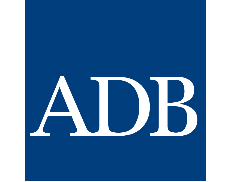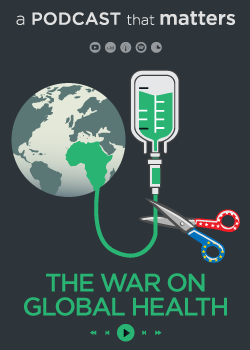Print

ADB TA No. 7597 – Nepal: Capacity Development for Waste Management, 58 municipalities of Nepal, ADB Manila
Details
Locations:Nepal
Start Date:Jun 1, 2011
End Date:Sep 30, 2012
Contract value: USD 450,000
Sectors: Pollution & Waste Management (incl. treatment), Urban Development
Description
The Objective of the assignment is to assist the Government in establishing as appropriate framework for solid management (SWM) and to develop capacity of the Solid Waste Management Council (SWMC) and Solid Waste Management Technical Support Center (SWMTSC) for discharging their mandate as prescribed in the new Solid Waste Management Act. Specific outputs includes:
(1) Supporting The Establishment Of An Appropriate Policy, Regulatory, and Institutional Framework For SWM: (i) draft the national SWM policy and strategy in accordance with the Act; (ii) devise functional linkages between relevant national agencies and local bodies to enforce the Act, policy and strategy; (iii) recommend organizational structure for the SWMC and SWMTSC with their roles and responsibilities; (iv) support for operationalizing the SWMC and SWMTSC, including preparation of business plan of SWMTSC; and (v) recommend regulatory framework to promote private sector participation (PSP) in SWM. (2) Strengthen The Technical Capacity Of SWMC and SWMTSC: (i) assess existing technical capacity of the Solid Waste Management and Resource Mobilization Center (SWMRMC) (to be converted into the SWMTSC) and other relevant central agencies involved in SWM; (ii) prepare a capacity development program; (iii) implement the capacity development program through classroom training, workshops, seminars, awareness campaign, and on the job training; (iv) support dissemination of the Act, policy and strategy to government agencies, local bodies and the public; and (v) provide support to a few pilot cases of innovative SWM practices. Elements of the capacity development program to be offered include policy and strategy implementation; planning, designing, implementing and operating the integrated SWM system including the sanitary landfill design, leachate treatment, and organic composting; developing the proposals eligible for clean development mechanism (CDM); and designing public-private-partnership (PPP) contracts. Making institutional and financial arrangements and facilitating and implementation of agreed arrangements. In the implementation of capacity development programs, resource persons may be invited, as needed, from the training budget.
(3) Supporting the Development of Relevant Regulations, Standards and/or Guidelines for Improving SWM at The Original and Local Levels: The scope compromise conducting a thorough assessment of the existing legal and institutional framework of the SWM subsector, identifying missing or ineffective regulations and guidelines, prioritizing the urgent areas of work, and drafting new and/or amending existing ones for review and approval by the relevant authorities. The work proceed through enhanced coordination and consultation among relevant government agencies to ensure necessary buy-in and effective implementation. Potential areas of support include: national guidelines on tariff (including methodology for tariff setting, implementation, collection and administration); Specific legal arrangements for PPP; health care waste management regulations; design standards for sanitary landfill; standards for the quality of organic compost; and a set of performance indicators and targets to serve as a checklist to assess local bodies performance on SWM.
Formulation of National Policy on Solid Waste Management and Strategy of Implementation National Policy Formulation for:
Capacity Assessment of SWMTSC, Gaps Identification and Strategy for Bridging the Gaps: Assessment of the in-house capabilities of SWMTSC, identification of the gaps that need to be bridged. Recommends the measures to bridge the gaps to make this institution capable of extending desired technical assistance and handholding support to local bodies.
Proposed Organizational Structure, Job Description and Human Resources for SWMTSC: Based on the gaps identified in the capability of SWMTSC, the organizational structure of SWMTSC proposed to be strengthened.
Preparation of Business Plan of SWMTSC for Next Three Years: Highlighted the activities to be undertaken by SWMTSC in a phased manner in order of priority and prepare development plan for SWM project.
Review of Existing Practices of Levy and Collection of Solid Waste Management Tariff: Undertaken to assess the current system of levy of SWM tariff, it's adequacy and level of collection efficiency.
National Guidelines on Solid Waste Management Service Tariff: Based on the study conducted on the existing situation of levy of SWM service tariff, national guidelines have been prepared to help SWMTSC in issuing necessary guidelines to local bodies in determining the tariff for providing SWM services to various categories of waste generators.
PPP Guidelines and Contracting Framework for Improving SWM Services: Prepared document to guides the local bodies in the advantages of PPP, various modes of PPP and the manner of involving PPP in service delivery etc. documents of RFQ, enable the local bodies in structuring their bidding process accordingly and select most preferred bidder through a fair and transparent bidding process.
Service Level Benchmarks and Performance Indicators: Prepared document to guide local bodies on the level of service they are ultimately expected to provide.
Guidelines and Standards for Planning, Design, Construction, and Management of Sanitary Landfills: Prepared document for guidance in planning, designing, constructing, and operating controlled and sanitary landfills for small and large cities.
Compost Quality Standards and Guidelines for Organic Composting: The physical composition of municipal waste in the country indicates that there is high proportion of organic matter and the waste is most suitable for biological process. Go quality of compost can be produced for application.
Health Care Waste Management Rules: Looked at the current regulatory framework for the management of health care waste and drafted simple and implementable rules.
Public Awareness and Participation: Information, education and communication are essential for creating public awareness and ensuring community participation. Provided the strategy and guidance for creating public awareness to enable local bodies.
SWM Regulations: SWM Act 2011 has been in place. Its implementation needs to be ensured by framing necessary regulations and national policy. Govt has accordingly framed draft regulations to facilitate the implementation of the SWM Act.
Base Line Survey of Solid Waste Management Services in 58 Municipalities: facilitated conducting base line survey of all the 58 municipalities in the country. All the aspects of solid waste management have been looked into by trained field investigators.
Conduction of Workshop and Trainings.
